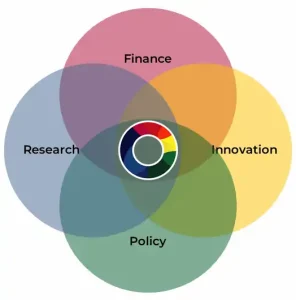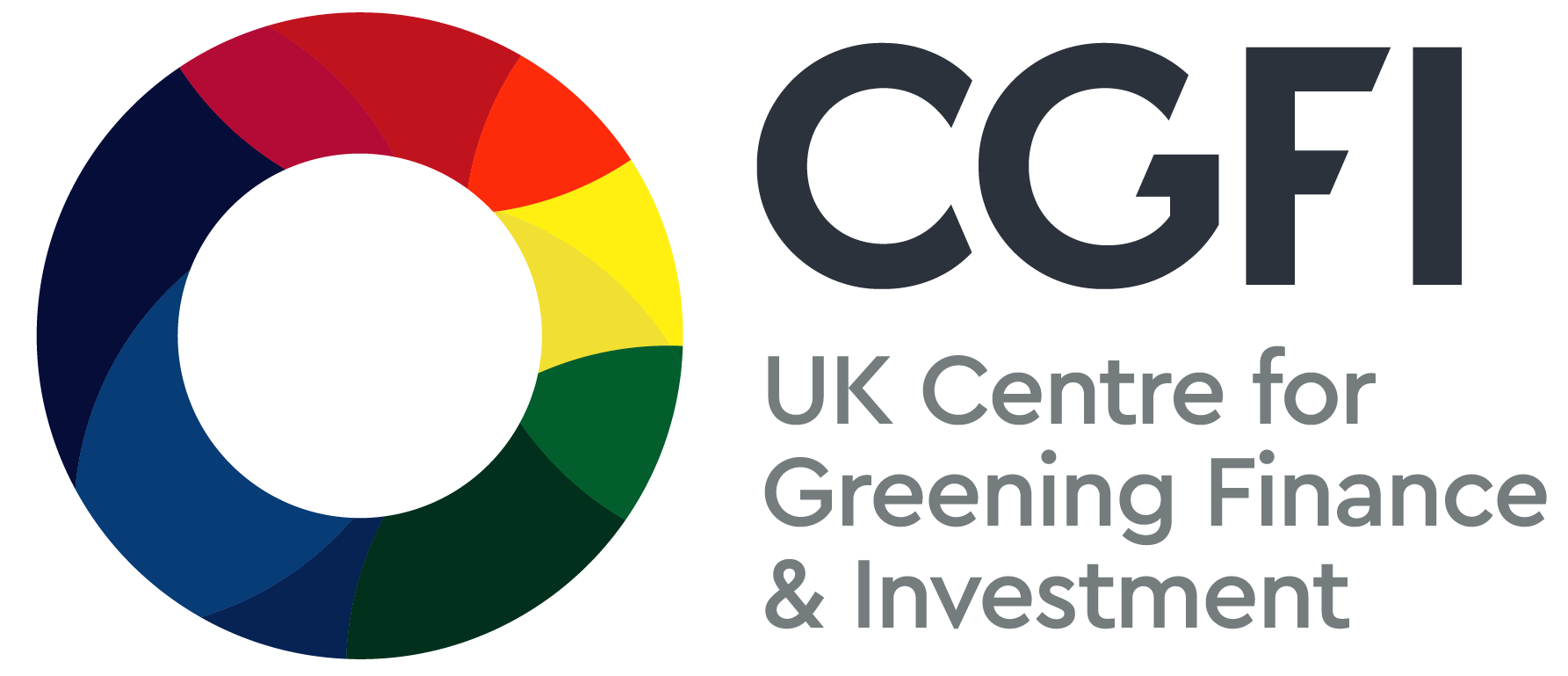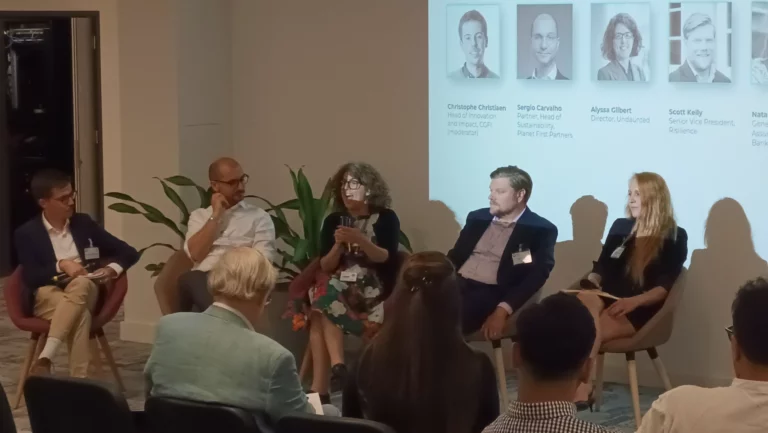On 11th July 2024, CGFI launched its ground-breaking Green Fintech 2.0 report in London. Janak Padhiar opened the event with an overview of the report, which is the first of its kind, exploring the landscape and evolution of green fintech analytics companies in the UK. Based on a database of over 200 UK-based green fintech businesses, this comprehensive resource provides an in-depth overview of popular product categories, funding, growth stages, regional distribution, notable acquisitions, and more. The UK’s unique combination of a leading research and science base, a prominent global financial hub, and progressive green finance policies creates the perfect conditions for commercial innovation in green fintech.
How to “scale up green fintech in the UK, further and faster” was the topic of a panel discussion with representatives from across the green fintech value chain. Christophe Christiaen (Head of Innovation and Impact, CGFI) moderated the conversation between Scott Kelly (Senior Vice President, Risilience), Nataliya Tkachenko (ESG Data and Generative AI Ethics Lead, Lloyds Banking Group), Alyssa Gilbert (Director, Undaunted) and Sergio Carvalho (Partner and Head of Sustainability at Planet First Partners). We summarised five key takeaways:
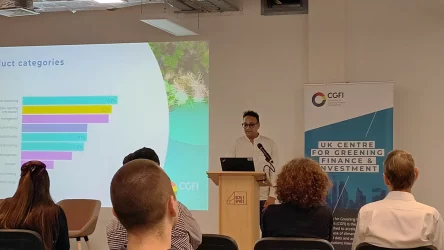
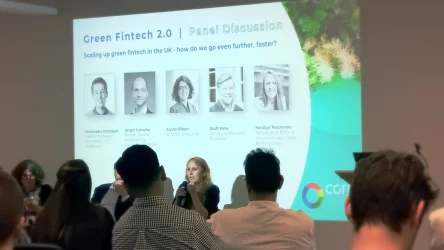
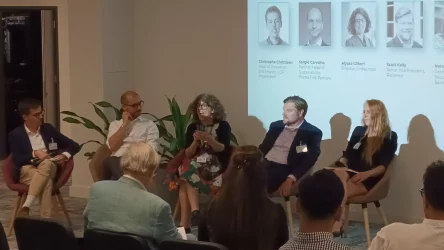
Financial institutions are becoming more sophisticated users of environmental data. They are investing in data processing capabilities as specialist sustainability profiles to interpret the insights appropriately. They do so through a combination of ‘buy’ or ‘build’ strategies where they ingest raw data to develop in-house solutions or procure analytics solutions where they lack expertise, or that involve ‘annoying’ data problems. Challenges remain in AI/greenwashing or subpar data practices, but overall, the growth in green fintech solutions is perceived as a positive evolution and opportunity for growth.
Co-creation is key for successful product development. The opportunity to work alongside financial institutions to access their data, shock and test models in real environments and take them on an adoption journey is invaluable for green fintech start-ups. This is particularly important for spinouts from academia or science-based start-ups, who need time to develop and operationalise scientific insights into relevant solutions. Working closely with clients in the development phase also help internal champions, such as chief sustainability officers, to make and defend the internal business case.
Green fintech start-ups should set realistic growth expectations to raise the right type of capital. Many start-ups present themselves with a Software as a Service (Saas) business model, but the reality is often more hybrid, combining data or analytics products with an advisory service. The complex nature of the sustainability topics covered, and the evolving technical capacity within financial institutions to process the information, mean that hybrid models are likely to be dominant for a while.
(Fin)tech investors need to be made aware about the specifics of the green fintech market. Green fintech businesses can attract investment from cleantech, fintech or (deep) tech investors but these may have different market, business model and growth expectations. Most green fintech businesses operate in a B2B market with maybe thousands of potential professional clients and not millions of consumers. The nature of customer demand means that building a pipeline of sufficient recurring revenues to attract growth equity takes (more) time than investors may be used to.
Connecting ecosystems and disciplines is critical to accelerate innovation. An environment where start-ups can connect with financial institution end users, academics and investors is crucial for innovation in green fintech. Particularly to develop and adopt analytics solutions based on credible and robust scientific foundations. Maintaining such an environment, connecting the dots across the ecosystem and providing thought leadership is what CGFI could and should aim to do going forward.
Innovation at CGFI
At the heart of CGFI’s vision and innovation thesis lies the conviction that scientifically robust climate and environmental analytics are indispensable for effectively reallocating capital. The evolving landscape of green finance and green fintech presents both challenges and opportunities. By addressing these issues head-on, we can foster an environment that promotes sustainable growth and innovation in the sector.
We see ourselves as an ecosystem accelerator, connecting research with policy, practice and commercial innovators. We believe that ensuring scientific integrity in novel solutions and uptake by the finance sector, while navigating the complexities of private capital allocation and funding models are all critical to the success of green fintech initiatives.
For more in-depth insights and our innovation thesis, access the Green Fintech 2.0 report. Connect with us to accelerate green fintech solutions for a greener financial system.
Contact Janak Padhiar to explore potential partnerships or discuss further:
